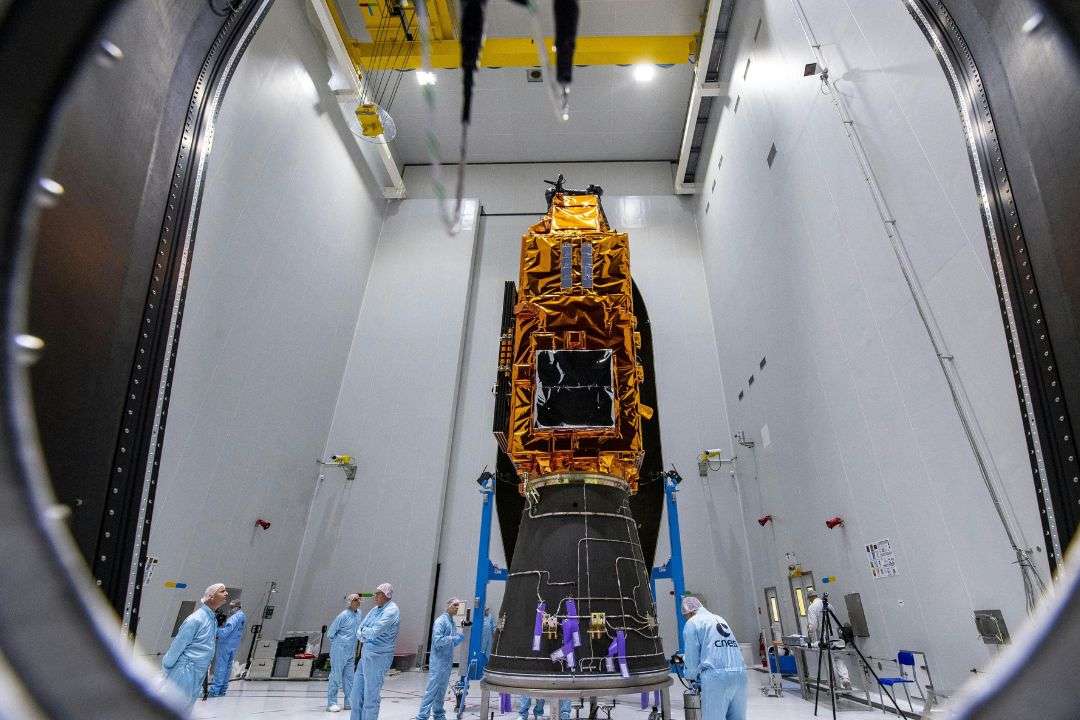The UK’s next-generation military communications satellite, Skynet 6A, has successfully completed the integration of its communications and service modules. Built by Airbus at its facilities in Stevenage and Portsmouth, the satellite is set to provide crucial communications services to Britain’s armed forces. The milestone was achieved at the National Satellite Test Facility (NSTF) in Harwell, Oxfordshire, which is operated by the Science and Technology Facilities Council’s RAL Space.
Ben Bridge, Chairman of Airbus Defence and Space UK, commented, “This important development allows us to proceed with final baseline testing at our Stevenage site, followed by environmental testing at NSTF later this year.” Skynet 6A is designed to be a fully-hardened military satellite for the UK Ministry of Defence. With three-and-a-half times the capacity of the current Skynet 5 satellites, it is expected to begin operations in 2027.
The Skynet satellite programme has provided the UK military with independent capabilities for over 50 years. Skynet 6A builds on this legacy, incorporating advanced features to meet the evolving needs of the armed forces.
Barry Austin, Skynet Programme Manager at Defence Digital, expressed his congratulations, stating, “This is a major achievement for the Skynet 6 programme and the UK space sector. Skynet 6A will be vital to enhancing our armed forces’ satellite communications, ensuring they receive superior global connectivity.”
Skynet 6A is the first large geostationary-orbit (GEO) communications satellite to be coupled in the UK. It is also the first spacecraft to utilize the newly operational NSTF for integration and testing. Earlier this year, the satellite’s antennas were successfully tested at the NSTF’s electromagnetic compatibility facility.
Sean Stewart, Head of Environmental Test at RAL Space, added, “This milestone marks an exciting step for the UK space industry. We are proud to support Airbus in integrating and testing Skynet 6A, and this achievement sets the stage for more satellites of this scale in the future.”
Airbus is a global leader in aerospace, defense, and space technologies, headquartered in Leiden, Netherlands, with major facilities across Europe and beyond. Established in 1970, the company designs, manufactures, and delivers commercial aircraft, military transport and mission aircraft, helicopters, and space systems. Best known for its commercial aircraft division, Airbus produces the A220, A320, A330, A350, and A380 families, serving airlines worldwide with fuel-efficient and technologically advanced solutions. In defense and space, Airbus supports governments and agencies with strategic aircraft, satellite systems, and cyber capabilities. With a focus on innovation, sustainability, and digital transformation, Airbus continues to shape the future of aerospace through clean aviation initiatives, autonomous systems, and next-generation air mobility solutions.







